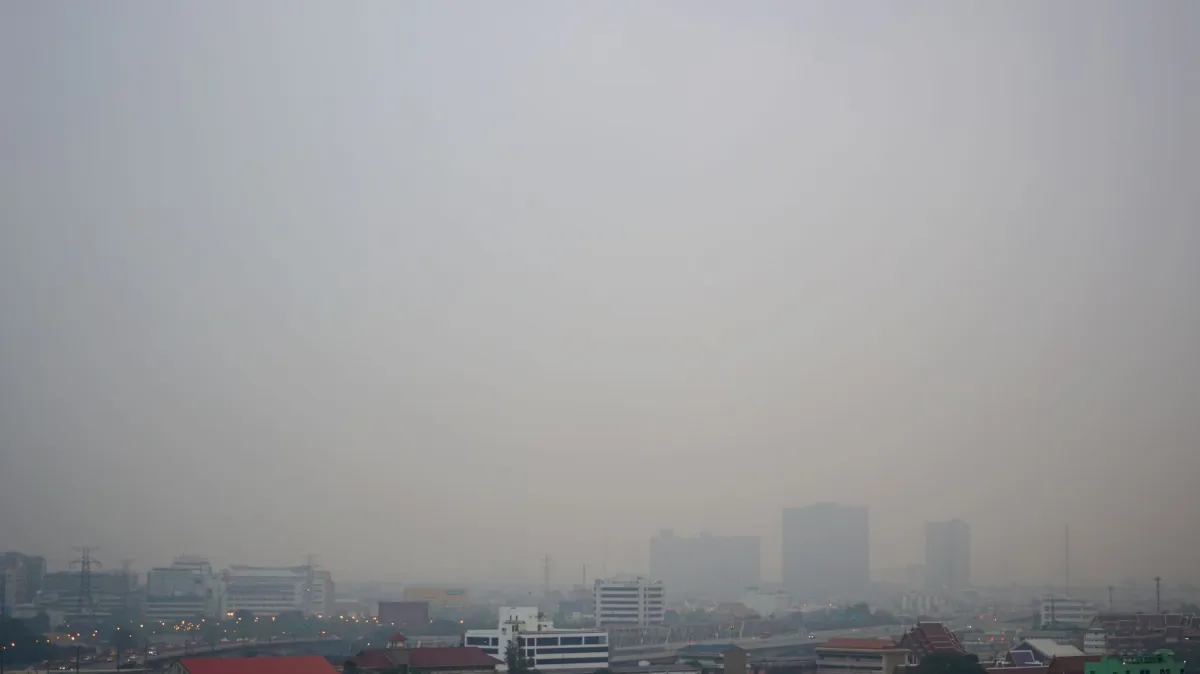
A serious issue that many countries, including Thailand, are dealing with is PM 2.5, small particulate matter levels that exceed the standard. Such issues have a direct impact on people's health, prompting the Ministry of Public Health to issue orders to all provincial public health offices to closely monitor the situation as the dust situation worsens.
In many provinces, PM 2.5 levels of particulate matter exceeding the standard (more than 51 mcg/m3 continuously for more than three days) are Chiang Mai, Lampang, Lamphun, Phrae, Phayao, Phitsanulok, Sukhothai, Nakhon Sawan, Uthai Thani, Nonthaburi, Pathum Thani, Lop Buri, Saraburi, Ang Thong, Nakhon Pathom, Samut Sakhon, Samut Songkhram, Suphan Buri, Samut Prakan, Chonburi, Rayong, Sa Kaeo, Khon Kaen, and Bangkok, causing the Ministry of Public Health to order each province with a PM 2.5 value exceeding the standard to consider opening a Public Health Emergency Operation Center (PHEOC) to manage the situation systematically.
Currently, Samut Songkhram Province is the first to open an operations center, while the other 23 provinces are monitoring the situation and preparing to open one.
At the same time, provinces with PM 2.5 levels ranging from 37.6 to 50 mcg/m3 must establish a provincial Situation Command Center (OC) to assist in communicating knowledge to the public about how to protect themselves from PM 2.5 and warning of risks and health consequences.
According to data from the Ministry of Public Health’s Health Reporting System, as of 24 January 2023, there were 212,674 air pollution-related diseases, an increase of 96,109 from the previous week, the majority of which were respiratory diseases, dermatitis, and inflammatory eye disease.
To reduce the risks from outdoor activities or exercise, people are asked to monitor the dust situation in the area using the Air4Thai application. If you live in a high-dust area or if you must travel to one, wear an N95 mask when outside and do not stay for an extended period of time. A small dust mask can be worn by members of the general public. If you experience symptoms caused by PM 2.5 dust, such as burning eyes, burning nose, chest tightness, difficulty breathing, headache, vomiting, or skin irritation, you should consult a doctor.